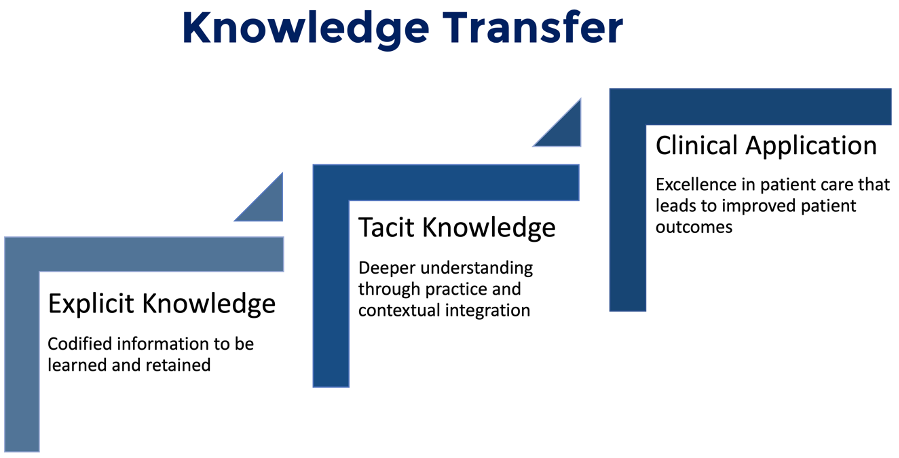Knowledge Transfer
Here at High-Yield Med Reviews, we put a lot of emphasis on knowledge transfer both in preparing for board exams and becoming a better clinician. You may be asking yourself, what is knowledge transfer and why is it important?
Knowledge Transfer is a popular buzz phrase in business organizations as a method to improve cross-functionality, but as an educational theory it refers to a strategic "stacking" of knowledge to achieve a higher level of understanding and problem solving, allowing for appropriate and effective application.
In healthcare, context matters. In a single day, healthcare professionals may use the same information in different ways, to provide the best solutions for various situations. The ability to apply and combine core concepts to varied and evolving clinical scenarios is essential. This is part of what makes healthcare such a challenging and rewarding field. Critical thinking on this level requires more than memorization. Mastery of core concepts and higher-level thinking is crucial for improved patient outcomes.
So, how does it work? It's helpful to imagine Knowledge Transfer as a staircase; you must take each step in order.

Step one is mastery of explicit knowledge. Explicit knowledge includes basic information, facts, and concepts. This is where your highlighter and charts come in handy. Explicit knowledge may not always represent the most engaging topics, but learning and retaining core information is the foundation for higher learning.
Step two builds on explicit knowledge, elevating basic information to core concepts, as you integrate your knowledge and understand context in a deeper way. Tacit knowledge comprehension takes analysis and practice.
Step three combines explicit and tacit knowledge for informed clinical application. This final stair-step achieves the ultimate study goal, improved patient outcomes. Here, knowledge is no longer theoretical but is applied to specific, individual patient care decisions. The core knowledge you have studied and retained is understood and integrated with other relevant information, coming together to find the best solution to a clinical problem.
Knowledge transfer is at the core of our educational strategy because it is essential to excellence in patient care. That's what you strive for. That's why we do what we do.
You might also like: How Does Board Exam Prep Differ from Clinical Practice


